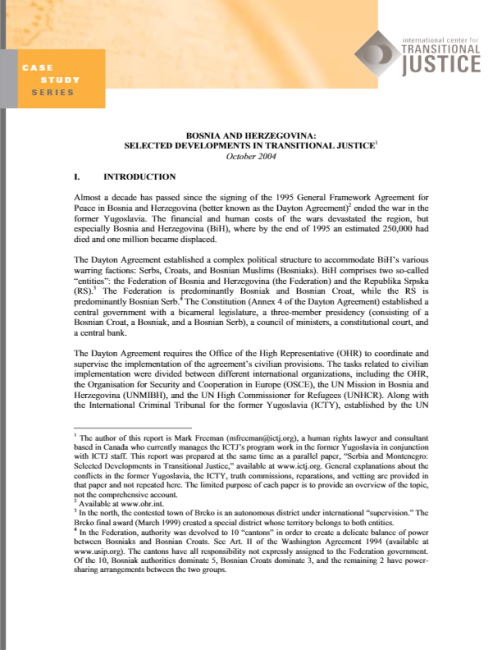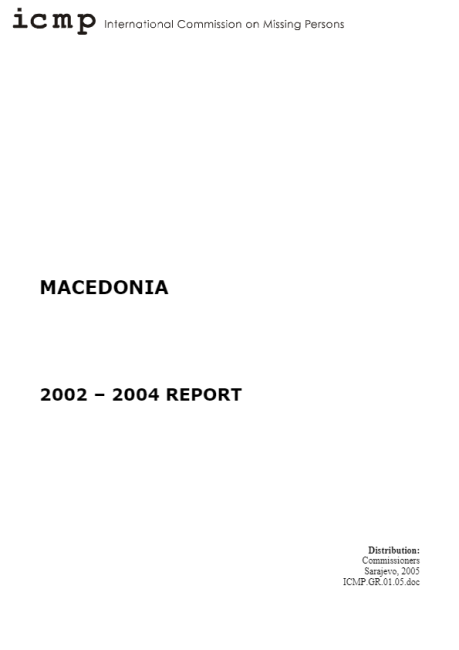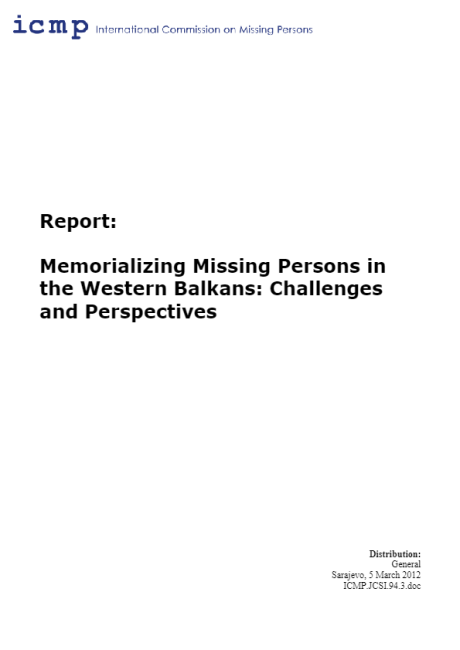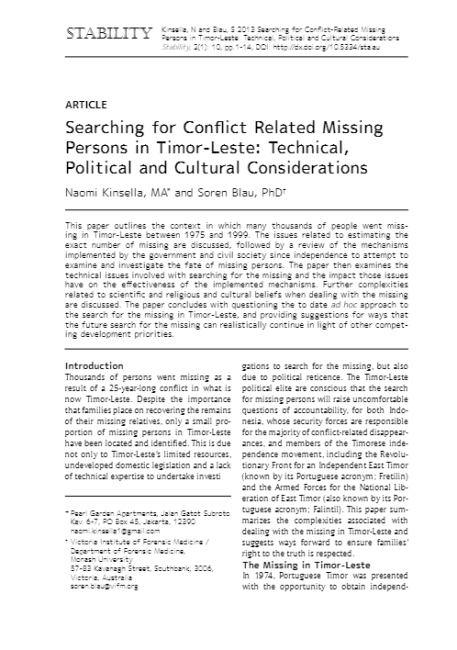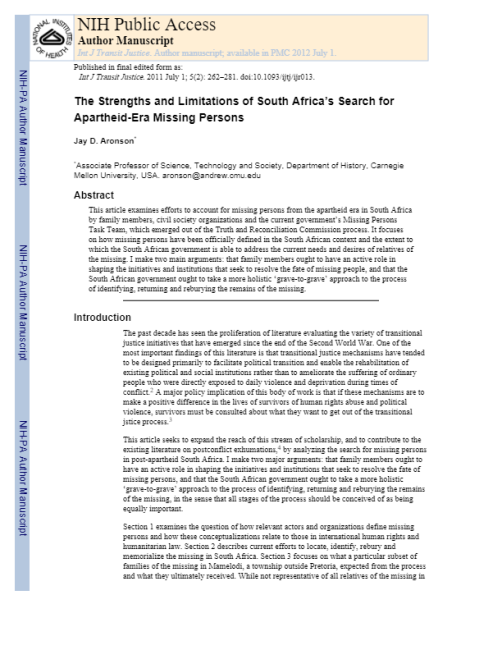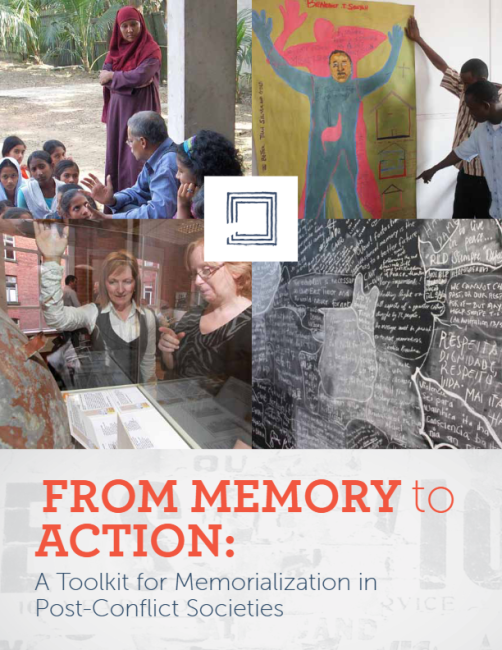
Missing persons, reconciliation and the view from below: a case study of Bosnia‐Hercegovina
When the war in Bosnia‐Hercegovina (BiH) ended in 1995, there were an estimated 30,000 missing people, of which over 10,000 are still missing. The issue of missing persons, however, is surprisingly under‐researched. Particularly under‐studied, moreover, is the relationship between missing persons and reconciliation, or rather the impact of the former on the latter. This is a gap that this article seeks to address. Based on 21 semi‐structured interviews with families of the missing, it aims to demonstrate that missing persons constitute a potentially important obstacle to reconciliation in BiH and, by extension, that some of the main challenges to building reconciliation can be found at the grassroots level. The article’s central argument, therefore, is that the view from below is critical to understanding reconciliation and some of the many difficulties that it presents in post‐conflict societies such as BiH.


